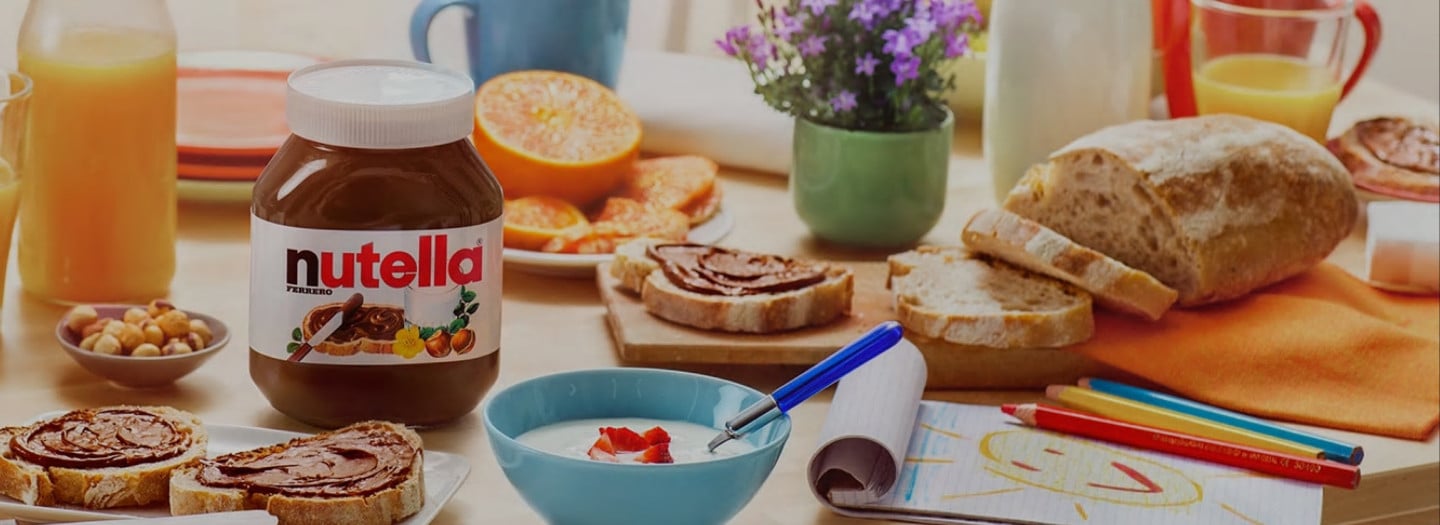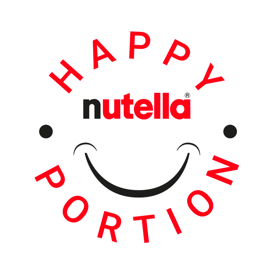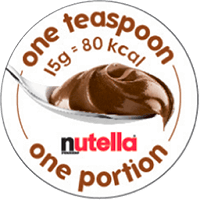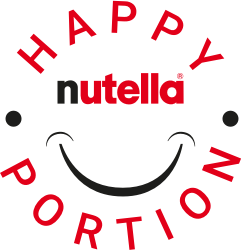
INSIDE NUTELLA®
Nutella® happy portion


Making time for family breakfast can help to get the most out of your morning! We've got top tips from nutritionist Helen Bond on breakfast. We've found just 15 minutes of family time is enough to start your day off positively.

Serving time: 15 mins

 As many of the family you can get together (heights may vary)
As many of the family you can get together (heights may vary) Delicious balanced and varied breakfast to motivate everyone out of bed
Delicious balanced and varied breakfast to motivate everyone out of bed 0 servings of phones or devices during breakfast
0 servings of phones or devices during breakfast 1 reflection each on a positive memory from yesterday
1 reflection each on a positive memory from yesterday 1 goal per person set for the day ahead
1 goal per person set for the day ahead

Helen Bond
BSC (HONS) RD MBDA
CONSULTANT AND FREELANCE REGISTERED DIETITIAN
Helen is one of the UK's leading dietitians with 23 years' experience in food, diet and its relationship to health. She is a passionate foodie, who firmly believes a balanced, nutritious diet, in appropriate portions, is central to good health and wellbeing, and vitality.
Helen focusses on making nutrition accessible to all, through her clear, accurate and straightforward recommendations that are realistic and simple for today's busy lifestyles.
Helen is fully registered with and an active spokesperson for the British Dietetic Association (BDA) and is also fully registered with the Freelance Dietitians Group and the Health and Care Professions Council.
* References:
Hoyland A., Dye L., Lawton C. L. (2009). A systematic review of the effect of breakfast on the cognitive performance of children and adolescents. Nutr. Res. Rev. 22, 220–243
Adolphus K., Lawton C.L, Dye L. (2013) The effects of breakfast on behavior and academic performance in children and adolescents. Front Hum Neurosci. 7:425
BDA Fact Sheet Healthy Breakfast. Available at https://www.bda.uk.com/foodfacts/healthy_breakfast. Accessed 4/09/2019



